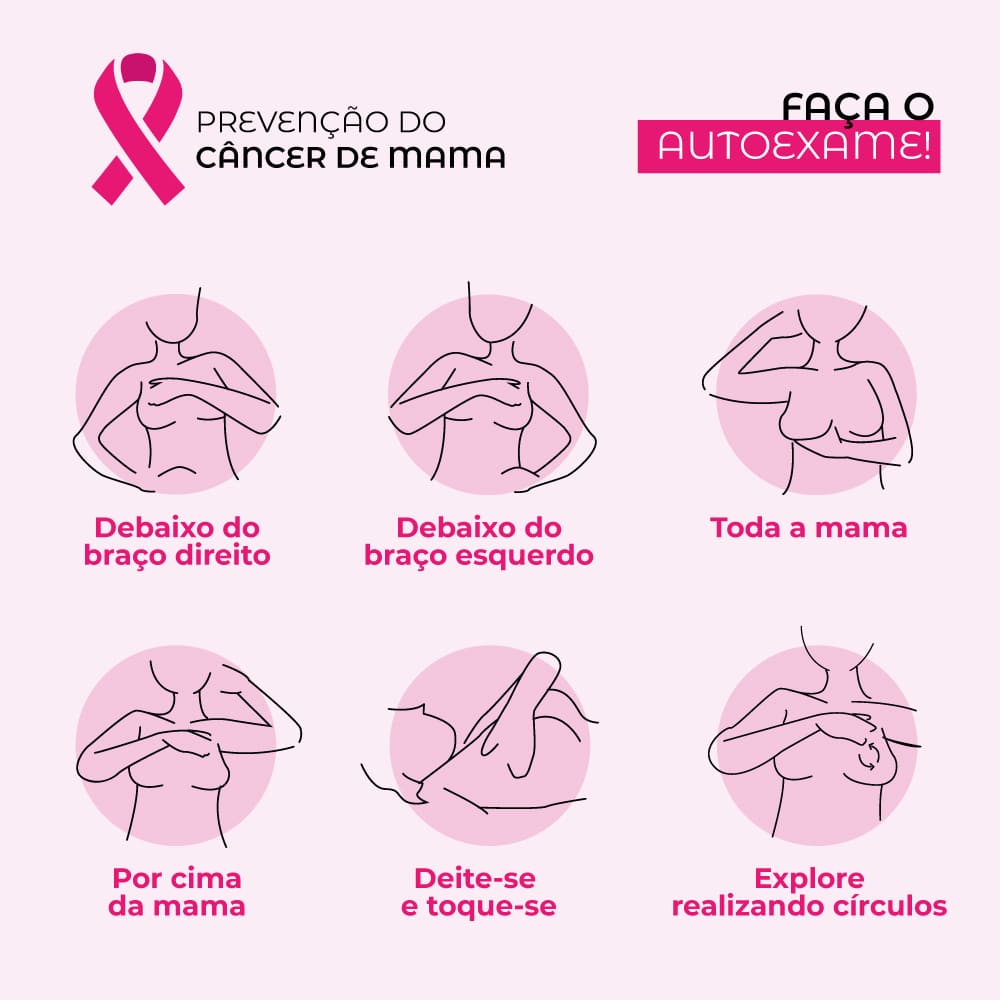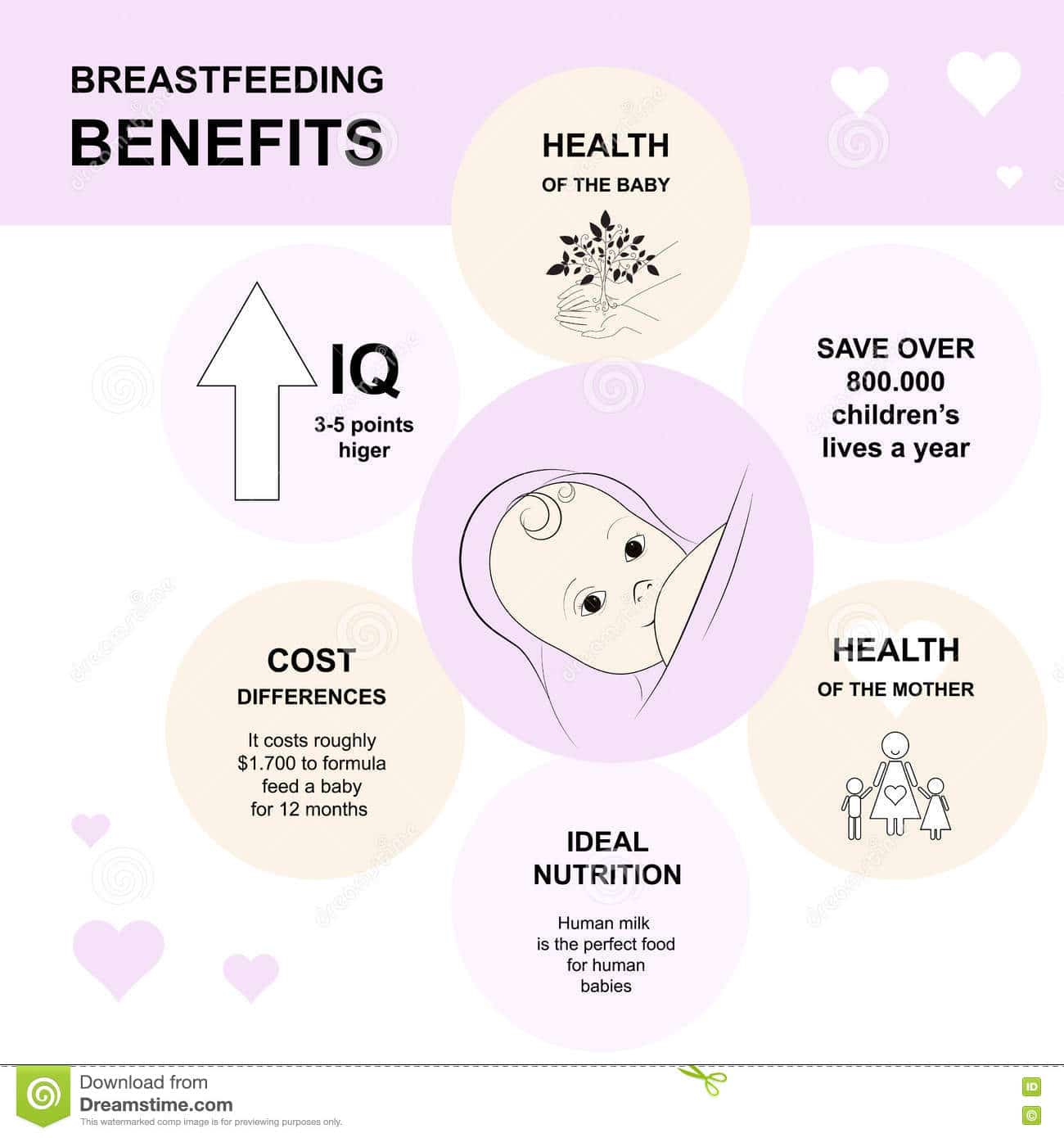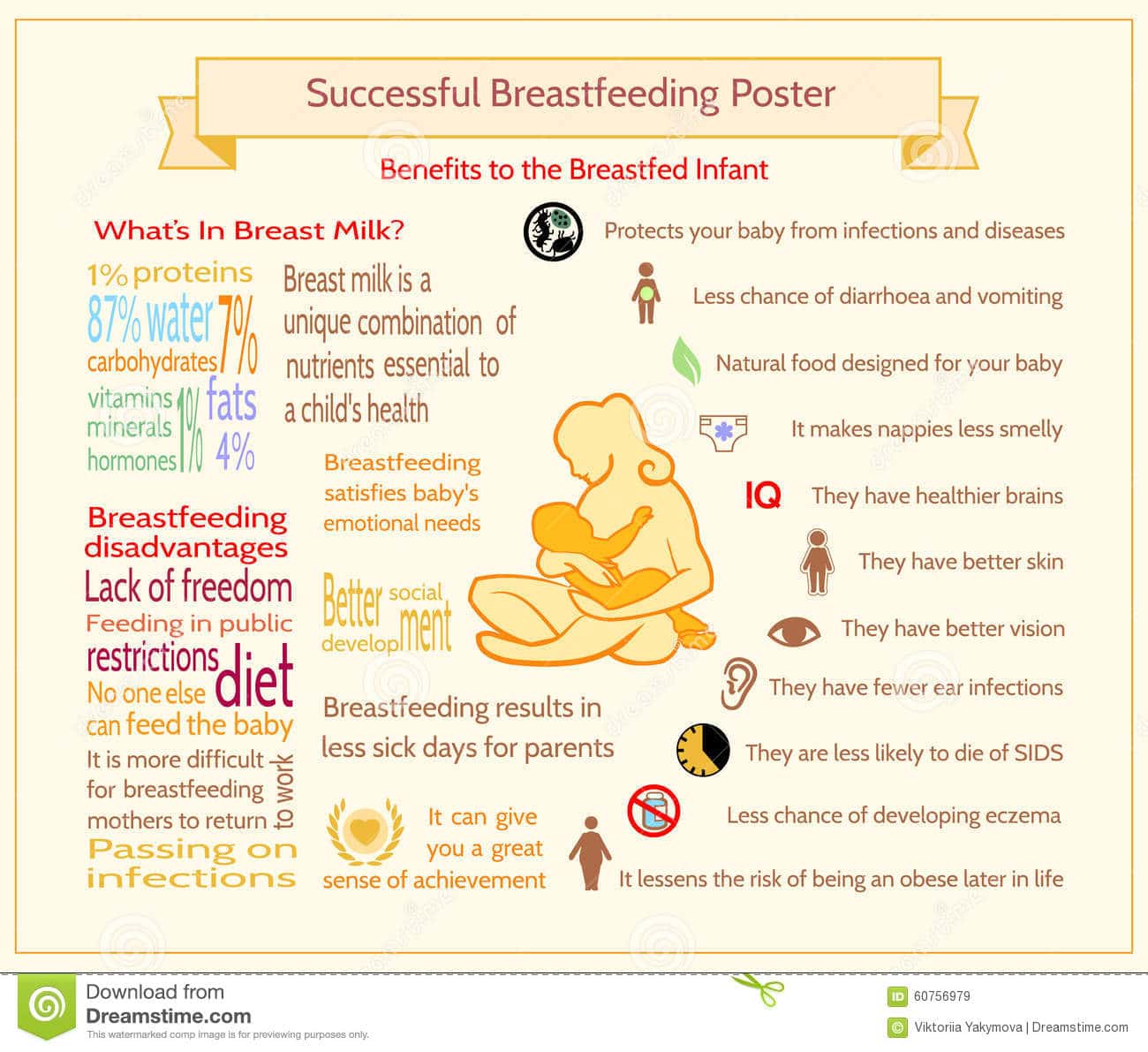How To Diagnose Breast Cancer
If your physician suspects breast cancer, theyll perform certain tests to make a diagnosis. A mammogram or ultrasound can provide images of the lump and help your doctor determine if the mass looks suspicious. You might also need a biopsy, which involves removing a small sample from the lump to test for cancer. If youre lactating, a radiologist might have a harder time reading your mammogram. Your doctor may recommend you stop breastfeeding before having diagnostic tests, but this advice is somewhat controversial. Most women can have screening procedures such as mammograms, needle biopsies, and even certain types of surgery while breastfeeding a baby. Talk to your doctor about the benefits and risks of breastfeeding while receiving diagnostic tests.
Does Breastfeeding Reduce Breast Cancer Risk
A 2017 report issued by the American Institute for Cancer Research and the World Cancer Research Fund concluded that five months of breastfeeding is associated with a significant 2% drop in the risk of breast cancer. The AICR/WCRF panel drew these conclusions from 13 studies involving 11,610 women. 1
Does Pumping Have The Same Benefits As Breastfeeding
Apyan: Lactation is the key process, so pumping does help with breast cancer protection. However, there is a difference between actually breastfeeding and pumping.
Some of the effects of breastfeeding are enhanced with direct contact, such as the release of oxytocin aka the love hormone that only happens for mom when theres skin-to-skin contact with the baby.
Read Also: How Early Can You Develop Breast Cancer
Request An Appointment At Moffitt Cancer Center
Please call for support from a Moffitt representative. New Patients and Healthcare Professionals can submit an online form by selecting the appropriate button below. Existing patients can call . for a current list of insurances accepted at Moffitt.
NEW PATIENTS To request a new patient appointment, please fill out the online form or call 1-888-663-3488.
REFERRING PHYSICIANS Providers and medical staff can refer patients by submitting our online referral form.
Moffit now offers Virtual Visits for patients. If you are eligible for a virtual appointment, our scheduling team will discuss this option further with you.
Moffitt Cancer Center is committed to the health and safety of our patients and their families. For more information on how were protecting our new and existing patients, visit our COVID-19 Info Hub
Can Breastfeeding Reduce The Risk Of Breast Cancer

Breastfeeding can reduce the risk of developing breast cancer, but requires breastfeeding to be continuous for a relatively long time.
©2022 National Breast Cancer Foundation, Inc. is a non-profit organization with a 501 tax-exempt status. All rights reserved. Site by GLIDE.
We use cookies on our website to personalize your experience and improve our efforts. By continuing, you agree to the terms of ourPrivacy & Cookies Policies.
You May Like: Chris Tia Donaldson Breast Cancer
What Is The Best Diet For Cancer
For example, women who eat a Mediterranean diet supplemented with extra-virgin olive oil and mixed nuts might have a reduced risk of breast cancer. The Mediterranean diet focuses on mostly on plant-based foods, such as fruits and vegetables, whole grains, legumes, and nuts. People who follow the Mediterranean diet choose healthy fats, such as olive oil, over butter and eat fish instead of red meat.
Can Breastfeeding Reduce Your Risk
There is information everywhere about how breastfeeding is good for your baby, giving him a healthy start to life. You may not have heard that breastfeeding can also reduce your risk of cancer later in life. Even if diagnosed with breast cancer, women who have breastfed are likely to have a less aggressive cancer, which will also be less likely to come back. Breastfeeding lowers your risk of breast cancer in three important ways: minimizing hormone exposure, making your cells more resistant to mutations, and encouraging a healthier lifestyle as you feed your baby.
Also Check: Gifts For Someone Going Through Chemo For Breast Cancer
Other Health Benefits Of Breastfeeding
Breastfeeding provides short- and long-term benefits for the baby breastfeeding protects the development of the immature immune system and protects against infections in infancy.
The benefits continue in to childhood and adulthood with lower risk of asthma and type 2 diabetes. For children, having been breastfed reduces the risk of being overweight or obese.
Excess body fatness tends to track in to adult life and can increase the risk of many cancers. Mothers who breastfeed have a lower risk of type 2 diabetes.
Breastfeeding For Cancer Prevention
Erica H. Anstey, PhD, MA, CLCCDCs Division of Nutrition, Physical Activity, and ObesityGinny Kincaid, MPHCDCs Division of Cancer Prevention and Control
Did you know that breastfeeding can lower a mothers risk for some cancers?
We are going to talk about the connection between breastfeeding and cancer prevention in honor of World Breastfeeding Week, an annual celebration the first week of August that recognizes global action to support women in their efforts to breastfeed. This week celebrates breastfeeding as an investment in health.
Most people know there are many benefits to breastfeeding. Weve probably all heard that its the best source of nutrition for most babies and provides many health benefits for infants. The health benefits for women who breastfeed, however, are less commonly known. In addition to lowering a mothers risk for type 2 diabetes and high blood pressure, breastfeeding can also lower a mothers risk of breast and ovarian cancers. A recent study found that only about 1 in 4 people think that a woman is less likely to develop breast cancer later in life if she breastfeeds. Its important to know that breastfeeding helps not only the babys health but also the mothers health too!
You May Like: What To Eat To Cure Breast Cancer
Does Breastfeeding Help Prevent Breast Cancer
Is it true that the longer a woman breastfeeds her babies, the lower her risk of breast cancer? Does it have any other effects on a mothers long-term health?
Andrew Weil, M.D. |September 29, 2017
Breastfeeding does appear to protect against breast cancer. It is also linked to lower rates of ovarian cancer, type two diabetes, cardiovascular disease, high blood pressure and high cholesterol.
Weve known for a long time that the more often a woman gives birth, the lower her risk of breast cancer. Research has shown that each birth can reduce a womans risk by seven percent and that the risk declines by another four percent for each year a woman breastfeeds her babies. Other research has shown that among women whose mothers or sisters had breast cancer, breastfeeding seems to reduce the risk of the disease by up to 60 percent.
In addition, compared to women who breastfed for a total of 18 months or more, those who never breastfed have a 1.5 percent higher risk of ovarian cancer. Some research suggests that the protective effect here is greatest among women who breastfed their last child.
Whats more, a study from the University of Pittsburgh, published in 2009, found that among 139,681 women participating, those who breastfed for a total of more than 12 months were less likely to develop type two diabetes, high blood pressure, or high cholesterol and were 10 percent less likely to develop cardiovascular disease compared to women who never breastfed.
Andrew Weil, M.D.
The Link Between Breastfeeding And Breast Cancer
Does breastfeeding reduce the risk of breast cancer? Yes, it does, though the specifics are hard to pinpoint. There are four studies worth noting.
A large-scale analysis of nearly 150,000 women published in The Lancetin 2002 found that for every 12 months of breastfeeding , the risk of breast cancer decreased by 4.3 percent, when compared to women who didn’t breastfeed at all.
Then a 2009 study of more than 60,000 women published in the Archives of Internal Medicine found that women with a family history of breast cancer reduced their risk of getting the disease before menopause by nearly 60 percent if they breastfed.
A study published in 2014 by the Journal of the National Cancer Institute found that women of African ancestry have an especially high risk of developing the aggressive and hard-to-treat forms of breast cancer called estrogen receptor-negative and triple-negativeand the risk actually goes up when a woman gives birthbut breastfeeding negates this risk.
“There seems to be growing evidence that breastfeeding is associated with a lower risk of the really aggressive kinds of breast cancer,” says Alison Stuebe, M.D., an assistant professor of obstetrics and gynecology at the University of North Carolina at Chapel Hill and the lead author of the Archives of Internal Medicine study.
You May Like: What Is The Strongest Chemotherapy Drug For Breast Cancer
What Are The Factors That Affect The Risk Of Breast Cancer
These factors include: Older age at birth of first child. The older a woman is when she has her first full-term pregnancy, the higher her risk of breast cancer. Women who are older than 30 when they give birth to their first child have a higher risk of breast cancer than women who have never given birth .
Pregnancy And Breast Cancer Risk

Overall, having children means your risk of breast cancer is lowered in the long term. Your risk becomes lower the more children you have and the earlier you begin your family.
This is because hormone changes that occur during pregnancy leave lasting changes to breast cells.
Having children could also be linked to lifestyle choices you might make when youre pregnant that lead to a decrease in risk, such as reducing your alcohol intake or changing your diet.
Research also suggests that temporarily your risk of breast cancer slightly increases after you give birth, regardless of your age. Its not known why this is. It might be due to hormone changes in your body after you give birth. But this is only a very small increase in risk that goes away after a number of years.
Also Check: What Can Prevent Breast Cancer
Characteristics Of The Included Studies
The characteristics of selected studies are shown in Table . The total number of participants varied widely across the included studies. All articles represented a range of geographical areas in Europe , Asia , and North America or Oceania . There were 32 articles with population-based case-control design, 12 articles with hospital-based case-control design, and one article with cohort design. The median quality score of all included articles was 7, which resulted in 33 articles with a score of 7 or more and 12 articles with a score less than 7. Based on the ROBINS-I tool, 37 studies were considered at moderate risk of bias, and 8 studies were rated at serious risk of bias. Of the 45 articles, 33 studies provided the effect estimates for the association of breastfeeding on leukemia, 11 studies on lymphoma, 7 studies on brain tumors, 4 studies on neuroblastoma, 4 studies on soft-tissue sarcoma, 3 studies on nephroblastoma, 2 studies on retinoblastoma, and 2 studies on germ cell tumors. The details of included studies for the subsequent subgroup analysis are shown in Additional file 1: Table S3. Moreover, after excluding studies with the breastfeeding only as dichotomous variable, and no sufficient data of the number of cases and controls in each breastfeeding category, 23 studies were included for leukemia , 6 studies for lymphoma , and 6 studies for brain tumors in dose-response meta-analysis.
Table 1 Characteristics of studies included in the meta-analysis
Leukemia
How Does Breastfeeding Lower My Breast Cancer Risk
Here are three reasons researchers offer:
Read Also: Survival Rates For Metastatic Breast Cancer
Data Extraction And Quality Assessment
We extracted crucial information from the final studies retained, including first author, year of publication, data collection years, country or region, sample size, age in years, source of participants, cancer site, method of assessing breastfeeding, breastfeeding category, variables adjusted or matched, and corresponding risk estimates with 95% CIs.
Two researchers independently rated the quality of the included studies using the Newcastle-Ottawa Scale with scores ranging from 0 to 9 points . This scale evaluates studies on the following aspects: selection of cases and controls comparability of cases and controls ascertainment of exposure and non-response rate . Studies with a quality score more than 7 points were considered as high quality. Two researchers independently assessed the potential risk of bias using the risk of bias in nonrandomized studies of interventions tool . This tool encompasses seven domains: the presence of any confounding variables, selection bias, deviations from the exposure, misclassification of the exposure, missing data, measurement of outcomes, and selection of the reported results. In this approach, a study was categorized as low risk, moderate risk, serious risk, or critical risk of bias.
Can Breastfeeding Prevent Breast Cancer
Aug 4, 2022 | Blog Post
World Breastfeeding Week 2022 1st 7th August 2022
You may have heard that breastfeeding helps to prevent cancer but the exact reasons for this arent fully understood. It is true that breast cancer incidences are lower among women who breastfeed, but the statistics vary considerably from study to study. Some research suggests a 4.3% reduced risk of breast cancer for every 12 months of feeding, while another large review found a 14% reduced risk.
It is generally understood that breastfeeding can result in fewer menstrual cycles which leads to lower levels of oestrogen in a womans body. Oestrogen can cause some breast cancers to grow so if levels are lower, there is less chance of this. It is also agreed by researchers that the protection is maximised if a woman breastfeeds for more than a year . Breastfeeding may also protect breast tissue since it causes the shedding of cells which may help remove cells with potential DNA damage. Its also thought that breastfeeding makes breast cells more resistant to mutations later on.
However, there are other considerations which may attribute to the reduction in risk since women who breastfeed are more likely to follow a healthy lifestyle while doing so. Women tend to eat healthier, drink less alcohol and cut out smoking during breastfeeding so these factors may play a part in the reduction of risk.
Also Check: How Big Are Breast Cancer Lumps
What Are Some Of The Benefits Of Breastfeeding For Infants And Mothers
Breastfeeding is important for overall health. Infants that are breastfed have a lower risk of asthma, obesity, ear and respiratory infections, sudden infant death syndrome, and gastrointestinal infections such as diarrhea. Breastfeeding also lowers a mothers risk of high blood pressure, type 2 diabetes, and breast and ovarian cancers.
How Long Should You Breastfeed To Reduce Your Risk
We don’t yet have a conclusive answer to this, but research, like The Lancet study, has pointed to a trend that longer is better. Even if you supplement with formula, it appears that breastfeeding of any kind still reduces your risk. So don’t feel like it’s all-or-nothing if you’re struggling with supply issues.
Dr. Stuebe encourages the moms she sees in her practice to nurse for at least a year, or as long as both the mom and baby want toin order to receive the many benefits of breastfeeding. The AAP has the same recommendation.
You May Like: Can You Get Breast Cancer At 25
Inclusion And Exclusion Criteria
The eligible studies were included as follows: study design of cohort or case-control, clearly defining the outcome of interest as cancer of specific anatomical site , reporting the relative risk or odds ratio and corresponding 95% CI to calculate the association between breastfeeding and cancer risk among children, or providing sufficient data to calculate them, if study populations overlapped, we selected the one with larger sample size. The exclusion criteria were as follows: systematic review or meta-analysis letter, meeting, or comment duplicate studies retrieved from various databases. Two reviewers independently performed study review and inclusion, and discrepancies were solved by a third reviewer .
What Are The Causes Of Breast Cancer

Studies have shown that a womans risk of developing breast cancer is related to her exposure to hormones that are produced by her ovaries . Reproductive factors that increase the duration and/or levels of exposure to ovarian hormones, which stimulate cell growth, have been associated with an increase in
Don’t Miss: What Does Early Stage Breast Cancer Look Like
Does Breastfeeding Help With Breast Cancer
A Kaiser Permanente study suggests more benefits for breastfeeding: Women diagnosed with breast cancer who had ever breastfed had a lower risk of the cancer coming back . The benefits of breastfeeding on recurrence risk were particularly strong for women diagnosed with hormone-receptor-positive, HER2-negative disease.
What Is A Summary Table For Breast Cancer
Breastfeeding and breast cancer risk. This summary table contains detailed information about research studies. Summary tables are a useful way to look at the science behind many breast cancer guidelines and recommendations. However, to get the most out of the tables, its important to understand some key concepts.
Read Also: Does Breast Cancer Have Any Symptoms